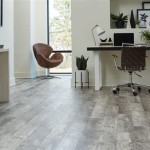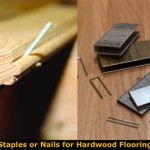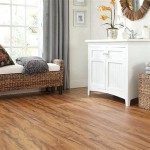Aluminum Stock Trailer Flooring Ideas: Durability, Safety, and Comfort
Aluminum stock trailers are a common and reliable means of transporting livestock. Choosing the right flooring for these trailers is a crucial decision impacting animal safety, comfort, trailer maintenance, and overall longevity. The floor must withstand the rigors of animal hooves, waste, and the elements while providing a secure and comfortable platform. This article explores various flooring options for aluminum stock trailers, focusing on materials, installation considerations, and the pros and cons of each choice.
Several factors contribute to the effectiveness of stock trailer flooring. Durability is paramount, as the floor must resist wear and tear from animals and the environment. Safety is equally important, requiring a non-slip surface to prevent injuries. Comfort considerations, such as cushioning and insulation, enhance animal well-being during transport. Maintenance ease and cost-effectiveness are practical aspects that influence long-term value. Each of these factors should be carefully weighed when selecting the most appropriate flooring for an aluminum stock trailer.
Diamond Plate Aluminum Flooring
Diamond plate aluminum, also known as tread plate, is a frequently used flooring material for aluminum stock trailers. Its raised diamond pattern provides a degree of slip resistance, and the aluminum construction offers excellent corrosion resistance. This material is inherently durable and can withstand considerable impact and abrasion, making it suitable for the heavy use associated with livestock transport. The smooth, non-porous surface of aluminum allows for relatively easy cleaning and sanitation, which is essential for maintaining a healthy environment for the animals.
However, diamond plate aluminum has certain drawbacks. Although the diamond pattern enhances grip, it may not be sufficient to prevent slipping, particularly when wet or covered in manure. Furthermore, aluminum can become hot in direct sunlight or cold in freezing temperatures, potentially causing discomfort to the animals. The rigid nature of aluminum offers little cushioning, which can contribute to fatigue and stress during long journeys. The installation process typically involves welding or bolting the aluminum sheets to the trailer frame, requiring specialized tools and skills.
Another consideration is the weight of aluminum. While lighter than steel, a thick gauge of diamond plate can still add a noticeable amount of weight to the trailer, impacting fuel efficiency and towing capacity. The cost of diamond plate aluminum is also a factor, as it tends to be more expensive than some other flooring options. Despite these drawbacks, diamond plate aluminum remains a popular choice due to its durability, corrosion resistance, and ease of cleaning. The gauge of the aluminum is important. Thicker gauges provide more strength and longevity but also increase the weight and cost.
Rubber Mats Over Aluminum
To address some of the shortcomings of bare aluminum flooring, many stock trailer owners opt to install rubber mats over a diamond plate or smooth aluminum base. Rubber mats provide enhanced slip resistance, improved cushioning, and a degree of insulation. These mats are typically made from recycled rubber or virgin rubber compounds, each offering different levels of durability and performance. Recycled rubber mats are often more cost-effective but may have a shorter lifespan compared to virgin rubber mats. Virgin rubber mats tend to be more resistant to wear and tear and can withstand exposure to animal waste and cleaning chemicals.
The thickness and texture of the rubber mats are crucial factors. Thicker mats provide better cushioning and insulation, while textured surfaces enhance grip. Common textures include ribbed patterns, diamond patterns, and pebble-like surfaces. The installation process for rubber mats is relatively simple; they are typically cut to size and laid over the aluminum floor. In some cases, adhesives or fasteners may be used to secure the mats and prevent them from shifting during transport. Regular cleaning and maintenance are essential to prevent the buildup of manure and other debris, which can compromise the mats' effectiveness and create unsanitary conditions.
While rubber mats offer several advantages, they also have some disadvantages. They can trap moisture and debris beneath them, leading to corrosion of the aluminum floor if not properly maintained. The weight of rubber mats can also be a concern, especially when combined with a heavy aluminum base. Furthermore, some rubber compounds may emit odors, particularly when new or exposed to high temperatures. Despite these drawbacks, the benefits of improved safety, comfort, and insulation often outweigh the disadvantages, making rubber mats a popular addition to aluminum stock trailer flooring.
Wood Planks with Protective Coating
Although less common in modern aluminum stock trailers, wood planks serve as a flooring option, particularly in older or custom-built trailers. Wood offers a natural cushioning effect and can be relatively inexpensive compared to aluminum or rubber. However, wood is susceptible to rot, decay, and damage from animal waste and moisture. To mitigate these issues, wood planks must be treated with a protective coating, such as a sealant, paint, or epoxy resin. The type of wood used also influences its durability and longevity. Pressure-treated lumber is often preferred due to its increased resistance to moisture and insects.
The installation process for wood planks involves securing them to the trailer frame with screws or bolts. Proper spacing between the planks is crucial to allow for expansion and contraction due to temperature and humidity changes. The protective coating must be reapplied regularly to maintain its effectiveness and prevent water damage. Cleaning wood floors can be challenging, as the porous nature of wood can absorb liquids and odors. Thorough cleaning and disinfection are essential to prevent the spread of disease and maintain a sanitary environment for the animals.
While wood planks can provide a cost-effective and comfortable flooring option, their susceptibility to rot and decay makes them less durable than aluminum or rubber. The need for regular maintenance and protective coatings adds to the long-term cost and effort. Furthermore, wood can be slippery when wet, posing a safety hazard for the animals. For these reasons, wood planks are less common in modern aluminum stock trailers, with aluminum and rubber flooring solutions generally preferred.
Composite Flooring Materials
Composite flooring materials offer a blend of durability, slip resistance, and comfort, making them an increasingly popular choice for aluminum stock trailers. These materials are typically made from a combination of recycled plastics, wood fibers, and other synthetic materials. The resulting product is resistant to rot, decay, and insect damage, making it a durable and long-lasting flooring solution. Composite flooring is also typically non-porous, which simplifies cleaning and sanitation. Many composite flooring products have textured surfaces to enhance grip and prevent slipping.
The installation process for composite flooring varies depending on the specific product. Some composite flooring systems are designed to interlock, creating a seamless and secure surface. Others are installed using screws or bolts to fasten them to the trailer frame. Proper sub-framing is essential to provide adequate support for the composite flooring. Composite flooring offers a degree of cushioning, which can improve animal comfort during transport. It is also relatively lightweight compared to aluminum or wood, which can help to reduce the overall weight of the trailer.
Despite the numerous advantages, composite flooring materials can be more expensive than some other flooring options. The cost of composite flooring can vary depending on the quality and composition of the material. Some composite flooring products may also be susceptible to staining or fading over time. Overall, composite flooring materials offer a compelling combination of durability, slip resistance, and comfort, making them a viable option for aluminum stock trailer flooring.
Sprayed-On Bedliner Material
Sprayed-on bedliner material, commonly used in pickup truck beds, presents another possibility for aluminum stock trailer flooring. These materials, typically polyurethane or polyurea based, create a seamless, waterproof, and highly durable coating. Application requires professional equipment and expertise to ensure proper adhesion and thickness. The textured surface provides excellent slip resistance, even when wet. Furthermore, the coating conforms to the contours of the trailer floor, eliminating gaps and crevices where debris and moisture can accumulate.
The primary benefit of sprayed-on bedliner is its exceptional durability and resistance to abrasion, impact, and chemicals. It can withstand the harsh conditions associated with livestock transport, including exposure to manure, urine, and cleaning agents. The seamless nature of the coating prevents water from penetrating the floor, protecting the aluminum structure from corrosion. The material offers a degree of cushioning, which can improve animal comfort.
However, sprayed-on bedliner can be a relatively expensive flooring option. Professional application adds to the overall cost. While durable, the coating can be damaged by sharp objects or heavy impacts. Repairs may require specialized equipment and materials. The color of the bedliner can also fade over time due to exposure to sunlight and UV radiation. Despite these drawbacks, sprayed-on bedliner provides a long-lasting and protective flooring solution for aluminum stock trailers, particularly when durability and slip resistance are paramount.

Horse And Livestock Trailer Purchasing 101 Part 4 Red Gate Farm

Extruded Aluminum Flooring For Truck Trailer Fonnov

5 Types Of Horse Trailer Flooring How To Choose One Farm House Tack

Horse And Livestock Trailer Purchasing 101 Part 4 Red Gate Farm

Trailer Optional Features Gooseneck Mfg Co Inc

A Closer Look At The Structural Supports On An Aluminum Trailer Floor

Horse And Livestock Trailer Purchasing 101 Part 4 Red Gate Farm

Trailer Flooring Guide

Horse Trailer Floor Failure Is Your Strong Enough

Merritt Gooseneck Trailers Crawford Trucks Equipment








